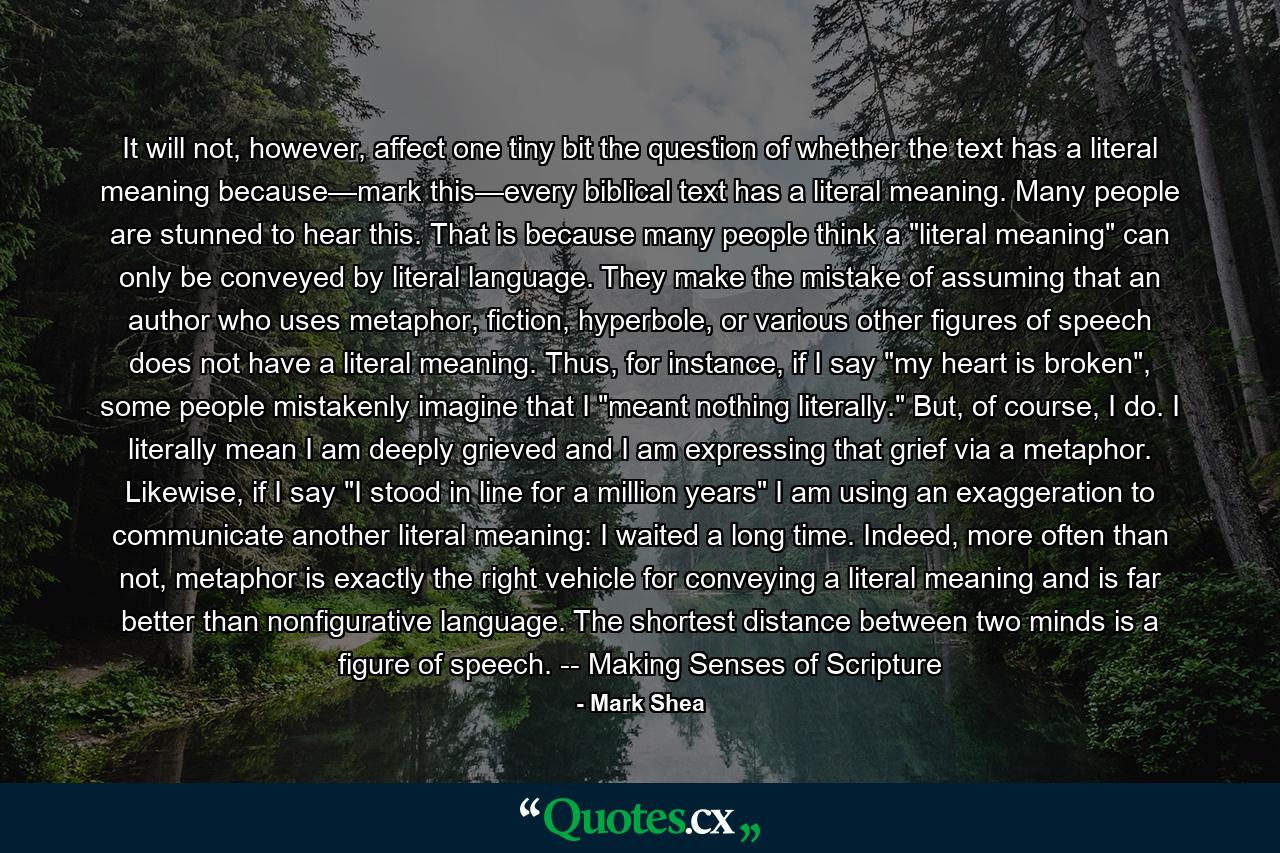It will not, however, affect one tiny bit the question of whether the text has a literal meaning because—mark this—every biblical text has a literal meaning. Many people are stunned to hear this. That is because many people think a “literal meaning” can only be conveyed by literal language. They make the mistake of assuming that an author who uses metaphor, fiction, hyperbole, or various other figures of speech does not have a literal meaning. Thus, for instance, if I say “my heart is broken”, some people mistakenly imagine that I “meant nothing literally.” But, of course, I do. I literally mean I am deeply grieved and I am expressing that grief via a metaphor. Likewise, if I say “I stood in line for a million years” I am using an exaggeration to communicate another literal meaning: I waited a long time. Indeed, more often than not, metaphor is exactly the right vehicle for conveying a literal meaning and is far better than nonfigurative language. The shortest distance between two minds is a figure of speech. — Making Senses of Scripture
